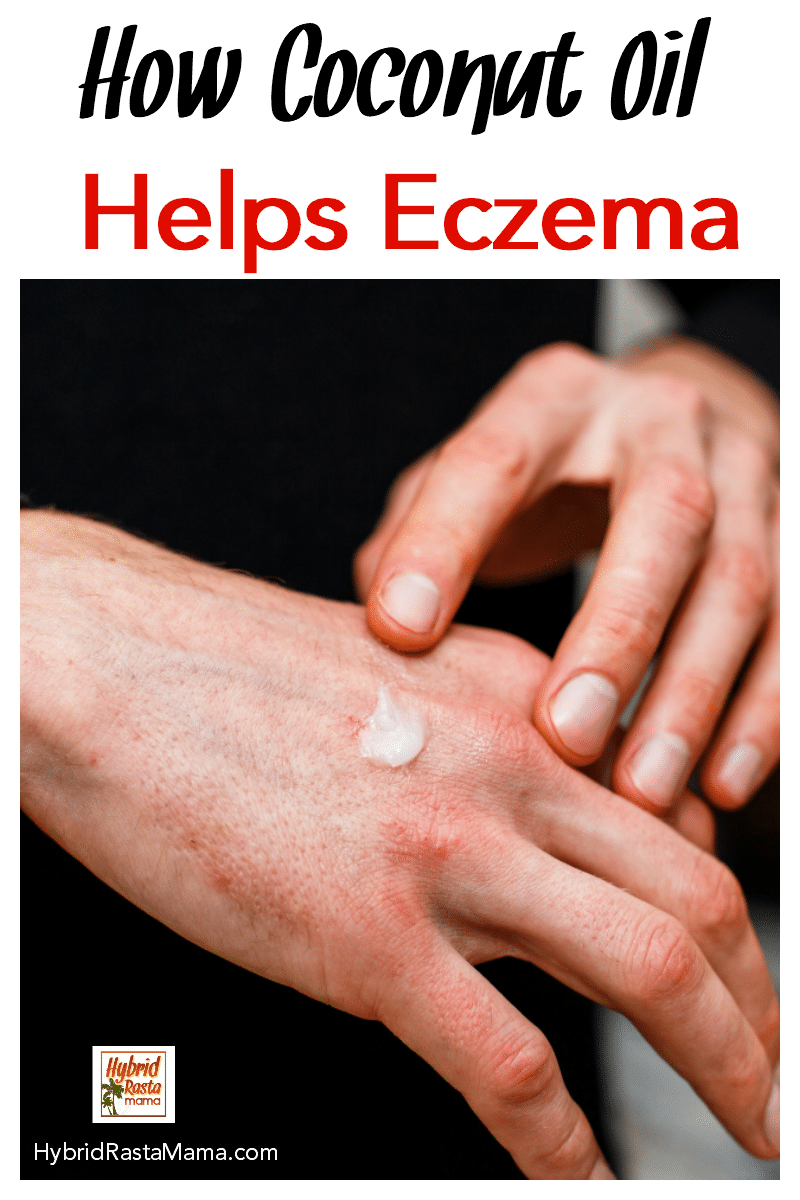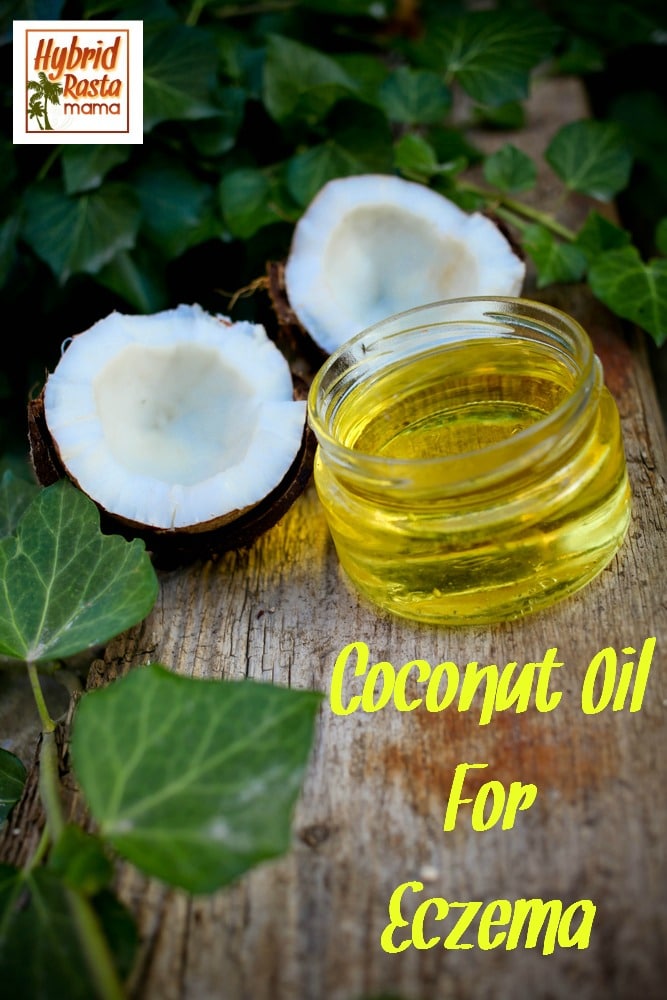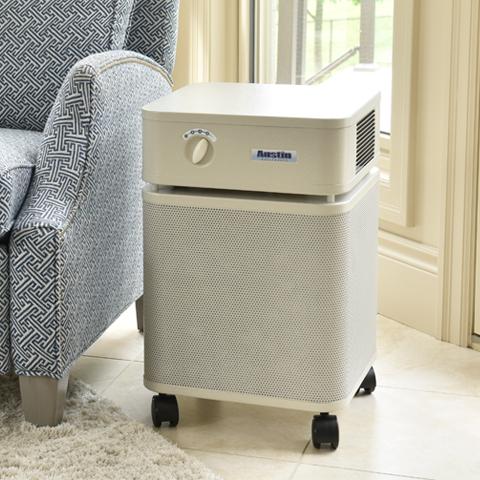Itch, itch, itch. Scratch, scratch, scratch. Chronic inflammation of the skin, accompanied by intense itching is most commonly diagnosed as eczema.
Eczema is a form of dermatitis (which means inflammation of the skin) that flares up time and time again. It usually starts in early childhood and tends to run in families. The severity and duration of flare-ups varies from person to person, and from time to time in the same person. It affects 15 million Americans, including 10-20% of infants. Hence why you need coconut oil for eczema flares.
There are many different types of eczema. Here is a quick overview of each:
- Atopic dermatitis – the most severe and chronic (long-lasting) kind of eczema. Atopic dermatitis is a disease that causes itchy, inflamed skin. It almost always begins in childhood, usually during infancy. Atopic dermatitis falls into a category of diseases called atopy, a term originally used to describe the allergic conditions asthma and hay fever. Atopic dermatitis was included in the atopy category because it often affects people who either suffer from asthma and/or hay fever or have family members who do.
- Contact dermatitis – is a reaction that can occur when the skin comes in contact with certain substances, which can cause skin inflammation. Contact dermatitis is most often seen around the hands or parts of the body that touched the irritant/allergen.
- Dyshidrotic eczema – is a blistering type of eczema, which is twice as common in women. It is limited to the fingers, palms and soles of the feet. Your hands may have itchy, scaly patches of skin that flake constantly or become red cracked and painful.
- Nummular eczema – more common in males, nummular eczema is due to dry skin in the winter months that causes non-itchy round patches. It can affect any part of the body particularly the lower leg. One or many patches appear, and may persist for weeks or months.
- Seborrheic dermatitis – red, scaly, itchy rash in various locations on the body. Very common on the scalp and is often seen on parts of the body plague with fungal infections.
What are the symptoms eczema?
- The skin usually looks and feels dry and can be scaly and pealing.
- Some areas of the skin become red and inflamed. The most common areas affected are next to skin creases, such as the palm of hands, front of the elbows and wrists, backs of knees, and around the neck. However, any areas of skin may be affected. The face is commonly affected in babies with atopic eczema.
- Inflamed skin is itchy. The more you scratch, the more it itches.
- Sometimes the inflamed areas of skin become blistered and weepy which can lead to infection.
What causes eczema?
As I mentioned before, eczema most often runs in families. Certain genes can make some people have extra-sensitive skin. An overactive immune system is thought to be a factor as well. Also, it’s thought that defects in the skin barrier contribute to eczema. These defects can allow moisture out through the skin and let germs in. (Using non-natural skin care products can actually open the skin up to eczema since they break down the skin barrier).
Factors that may trigger eczema include:
- Food allergies
- Contact with irritating substances (wool, synthetics, fur, body fluids)
- Environmental allergens
- Hormonal changes
- Poor gut health
- Autoimmune diseases
- Heat and sweat
- Cold, dry climates/windy conditions
- Dried out skin
- Stress
- Dust mites
- Mold exposure
Most doctors are quick to prescribe chemical laden barrier creams or for severe eczema, steroid creams. While these may offer some relief, they often times simply perpetuate the cycle. While you have to do your own research and determine what method of eczema support and prevention works best for you, in my experience, the more natural you go, the longer the time I have between flare ups.

Is Coconut Oil Good For Eczema?
According to the National Eczema Association, the best moisturizers for eczema are greasy and oily and not water based. Coconut oil is clearly a good match here as it contains less water than commercial lotions and it definitely is oily. Despite not having a high water content, coconut oil’s moisture retaining capacity is what helps restore dry, scaly skin, keeping it hydrated and healthy.
Let’s get a little geeky, shall we? In healthy skin flora, lipases are enzymes that digest sebum (body oils) into fatty acids. This makes the skin more acidic, which prevents bacteria from penetrating, something that is very important if you have cracked skin or open sores. Coconut oil removes bacteria from the skin, by being converted into fatty acids which produce an acidic layer in the skin making it inhospitable for survival of bacteria. It also prevents further entry by the bacteria due to the increased skin surface lipids (protective layer) it creates. Cool huh?
Let’s not forget that the medium chain fatty acids also found in coconut oil possess antibacterial, antifungal and antiviral properties! This means extra protection against the microbes responsible for eczema. Coconut oil for eczema for a huge win!
How to use Coconut Oil for Eczema
Consume It!
Recovery is a two way street. Inside out and outside in! So to promote recovery from the inside out, be sure you are consuming coconut oil daily! Mothers who are breast feeding a baby with eczema can take coconut oil themselves to help increase the healthy properties of their breast milk, passing these along to their babies.
Slather It On!
Yep – grab your jar of coconut oil and apply liberally. Everywhere. As often as you think of it. For hand eczema, try putting on a pair of cotton gloves like these afterwards. This will protect your hands and allow the coconut oil more of an opportunity to work its magic!
Bathe In It!
That’s right! Hop in the tub and soak in water mixed with coconut oil. Fill the tub with warm water (not hot – eczema hates hot water!) Then pour in a cup, yes one cup, of coconut oil. Stir it evenly so that the coconut oil mixes with water as best as an oil can. Hop on in and sit there for 30 minutes. The pores of the skin will open up, giving the coconut oil molecules the opportunity to soak in and effectively remove impurities in the skin pores. After soaking gently towel dry yourself. This method is great to use if eczema attacks the skin of hard to reach areas like the back or buttocks.
Don’t worry about a coconut oil stain on those towels. It is super easy to remove a coconut oil stain with my method.
Herbs For Eczema Relief
I happen to also really love two specific herbs. They are both very calming and soothing.
Burdock: This herb is good for reducing inflammation and also destroys inulin which has been linked to eczema outbreaks. You can make a tea from this which is easy to make and drink. I use this burdock root.
Chamomile: Chamomile has a long historical use for skin ailments. One study showed that topical chamomile cream was as effective as a type of low-dose steroid cream for eczema. It can also be taken internally as a tea. This is my favorite organic chamomile.
For those of you who have battled eczema, what natural remedies brought you relief?

Sources for this article include:








Barb Schwartz says
I have phoriosis and it is a miracle for
Me I use cocoanut oil inside and out. It’s
A blessing.
Kirsten @ A Search for Delicious says
As part of my nutritional coaching work I do holistic skincare, and one of the first things I ever recommend for clients with eczema is coconut oil- external and internal I’m glad I found your web site. I will be sending clients here! (I’m sorry for the weird comment formatting issues. My cursor seems to stick in this field.) ~Kirsten in SFCA
Jennifer says
Ahhh – thanks for the vote of confidence in my site! I appreciate it!
Michelle R says
I don’t get outbreaks terribly often (thank goodness!) but when I do I use lotion with tea tree oil. It usually lessens the outbreak duration by half.
Bonnie says
We were told my son has eczema at his 2 month check-up. (Up to that point, he got splotchy when hot or fussy, and had what I thought was baby acne.) I bought Eucerin that night, as recommended by the doc, and the next day his eczema was so much worse, all over his body. I then tried BabyGanics and used that for about two weeks but he wasn’t getting any better. After lots of research (thanks very much to sites like yours!), we made the switch to coconut oil and never looked back. At almost 5 months, his skin is now so soft, and face is perfectly clear (as a baby’s should be!). He still gets a little red behind his knees, but it’s nothing like it was earlier. Thank God, he has never acted like the eczema bothered him and is happy as can be. I need to work on getting more coconut oil into my diet so we can both benefit from it that way.
Single Mother Ahoy Vicky says
My daughter has dry skin patches which the doctor says are “probably eczema.” He gave us all sorts of lotions and potions for the bath and to put on her skin, but I don’t like to use chemicals (even if they’re meant for kids) so I tend to rub coconut oil into her skin and put porridge oats in her bath… I’d not thought of coconut oil in the bath though – I might give that a go! Thanks!
Lisa M. says
We’ve been dealing with eczema for over 9 years with my son. Besides moving to a humid climate (we lived in the Caribbean for 4 years), the most effective tropical treatment (and yes, we’ve tried them all) that has worked for him is definitely coconut oil. Well OK, the steroid creme worked pretty good too, but we definitely don’t want to use that all the time! We found that mixing the coconut oil with vaseline works really well because it keeps the oil from evaporating too quickly. If you don’t want to use the traditional vaseline, you can use “unpetroleum jelly” which also has coconut oil in it, as well as other good natural oils.
Randy says
I just want to say thank you very much for sharing this wonderful information, I have been searching for a cure for my dermatitis eczema for a while but everything I found did not work.
Susan Hirst says
I really appreciate this information on eczema. I live in a very dry climate and it often triggers my eczema. Your idea to use coconut oil to treat it sounds great. I’ll be sure to try it.
Candy says
This is so spot on. I wish I knew this when my daughter (now 14) was a baby – her eczema was so bad she would scratch until it bled and I was so worried she would be scarred for life. We used Eucerin for years and as a young mom I didn’t realize it should have cleared up at some point (duh!).
Anyway my 1 yr old also has it and I use coconut oil and shea butter mixed and his doctor is shocked at how clear and soft and moist his skin is now and it took a day or two to see a difference. His legs looked like elephant trunks when in first started, poor thing. Now I use it all over and it’s so good I can even skip a day and he’s still ok.
P.S. LOVE your site! 🙂